When picky eating rears its ugly head, parents often negotiate with, bribe, coax, and micro-manage their kids at meals. Although—in the heat of the moment—these tactics are tempting, we now know that they don’t work very well, and can even enable picky eating. Instead, here’s one easy change that will help right now.

My three year-old rarely touches her meals these days with the exception of breakfast, where she eats an unusually large portion of oatmeal, yogurt and fruit—likely because she’s so hungry from eating nothing the night before.
When it comes to lunch and supper, she decides that it’s yucky before she’s tastes it. She has a select few foods that she loves and gobbles up happily, but beyond her safe repertoire, she’s just not interested. She’s also very strong willed, which amplifies the power struggles we seem to be having at the table (although I’m trying to remind myself that this trait will serve her well long-term).
I’ve had a true taste of what it’s like to have a persistent picky eater, and how my clients and followers must feel when they come to me, desperate for advice on how to they can get there child to eat something–anything–at a meal.
Even though I’m armed with knowledge and expertise in the area of picky eating, experiencing it first-hand has been enlightening. It has allowed me to relate to picky eating parents on a whole new level, which I’m thankful for. What I’m not thankful for however, is serving my daughter delicious and nutritious meals everyday, only for them to go untouched.
The struggle is REAL.
In fact, there have been several instances where I’ve been tempted to yell “LYLAH, WHY ARE YOU SO PICKY?!”
Can you relate?
When picky eating rears its ugly head, parents often negotiate with, bribe, coax, and micro-manage their kids at meals. Although—in the heat of the moment—these tactics are tempting, we now know that they don’t work very well, and can even enable picky eating.
What many parents don’t know however, is that the seemingly harmless act of labelling their child “a picky eater,” whether directly to the child, around family or friends, or out in public, can have negative consequences too.

Sarah MacLaughlin, parenting educator and author of What Not to Say: Tools For Talking With Young Children agrees, and writes: “When a child hears a word or phrase applied to him often enough, it “sticks” just like a name tag. This can change his self-image. Children tend to accept without question the labels adults use to describe their physical characteristics, personality, abilities, and limitations.”
Labelling a child as a “picky eater”, or saying words like “oh, he won’t eat it anyways” in front of a child only makes him feel as though he is incapable of loving a variety of foods, or becoming a competent eater. It will also grant him permission not to explore new foods — he’s a “picky eater” after all.
This label easily perpetuates the picky behaviour and decreases a child’s self-confidence at the dinner table. What can drive this home even more is if your child has a sibling who eats really well and receives the label “good little eater” (in a child’s mind, if he is not a “good eater”, he must be a “bad eater”, right?). Amy McCready, Parenting Expert and founder of Positive Parenting Solutions agrees and writes in her Huffington Post article that “when we label or compare our kids, we’re praising them, or worse, belittling them, often without realizing it.” Similarly, if parents or loved ones make comments such as “oh, he won’t eat that anyway” or “don’t serve him that food- it will be wasted,” it will make the child feel incapable of ever accepting or enjoying that food.
In order to help your child widen her palate, and more importantly, feel capable of accepting new foods, it’s important to make her feel confident in her eating abilities; to gently encourage her to explore different foods at her own pace, and to remind her that even though she might not like a particular food today, she might like it the next time she tries it (or, in a few weeks from now). After all, we all have likes and dislikes, and these can change over time.
When should you worry though?
Looking at your child’s growth eating patterns over time can help to ease your worry. I know that my daughter is growing well and following her growth curve steadily. She eats a hefty breakfast and eats well at our scheduled snack times too. She only happily accepts about 8-10 nutritious foods at the moment (that I can think of), but with these foods, she’s getting a nice variety of nutrients, with the exception of Omega-3 and Vitamin D, two nutrients that I’m supplementing anyways. On particularly picky days, I often top her up with a children’s multivitamin for peace of mind, but usually feel that this isn’t necessary.
Knowing that she’s meeting her nutrient requirements and growing well allows me to feed her with my long-term feeding lens on–how will my actions and language affect my daughters long-term eating habits and relationship with food?
The key is to make your child feel safe, secure and unjudged:
Making your child feel safe, secure and unjudged at the dinner table is key to his future eating success. Reassuring him that it’s normal to not like a particular food now, but that he will likely accept it in the future will increase the chances of him trying it again in the future with an open mind.
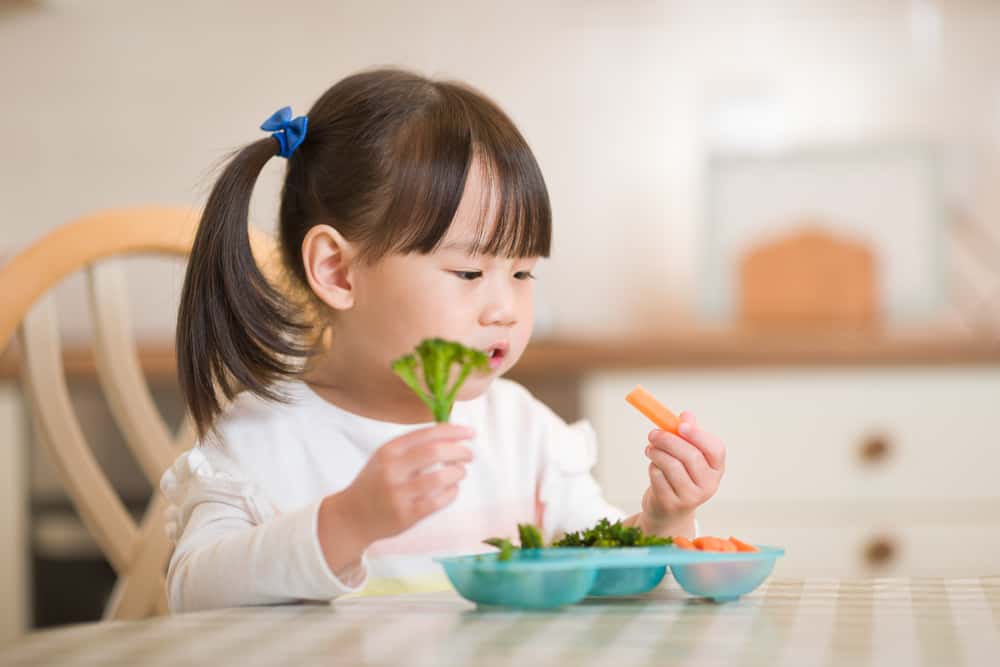

Don’t refer to your child as a “picky eater”. Use this dialogue instead:
When your child doesn’t want to come to the table for a meal:
“It’s okay if you don’t want to eat, but you still need to come to the table. Mealtime is also about family time”
If your child refuses to eat his vegetables:
“It looks like you’re not quite ready to try that vegetable. That’s ok. You can see if you feel up to trying them again tomorrow.”
If someone comments on your child’s lack of eating or asks if he’s a “picky eater”:
He’s still learning to like that food. He’ll get there in his own time. For now, he will eat the foods that he enjoys”.
If your child thinks a food is “yucky” before even trying it:
“It’s hard to really know if a food is yucky before you test it out. If you don’t feel ready to taste it yet, you could touch it or even lick it first”. *Exploring foods in any way is a step in the right direction.
If your child spits a food out after trying it:
“It’s ok to try a food and decide that you don’t want to swallow it. You were brave to try something new! Next time you might decide that you want to swallow it.”
If he’s not pleased with the types of foods served:
“You can choose what you would like to eat on your plate. You don’t have to eat everything” . *It’s important to always include at least one food that each child likes at meals so that there’s always something for them to eat.
If your child says something like “Yuck, I hate mushrooms!”
It’s okay not to like mushrooms right now, but it’s not ok to be rude. Instead you could say “no thank you” when you don’t want to eat something. Your tastes will change as you get older — you will probably start to like mushrooms one day soon!”
You could also relate to him by saying “You know, when I was young, I didn’t really like carrots. But then one day I decided to try them again and I started loving them!” Sometimes our food likes and dislikes change. Let me know when you feel up to giving them another try.”
If you can take a deep breath and sit down to the table armed with some strategies that encourage your child to explore foods (even if she doesn’t taste them) and try your best to focus on family time and modelling healthy eating, you’re doing your job. This is not easy, but the payoff is worth it.
For your child, learning to accept and enjoy new foods is similar to learning to ride a bike, learning to tie shoe laces or learning to read. It takes time, patience and encouragement. Let’s drop the picky eating label and encourage our kids, advocate for them and celebrate their mini milestones.
*post adapted from Sarah’s original YMC post The One Thing Parent’s Of Picky Eaters Need To Stop Doing
I also post free daily nutrition tips for parents over on my Facebook page – feel free to check it out!

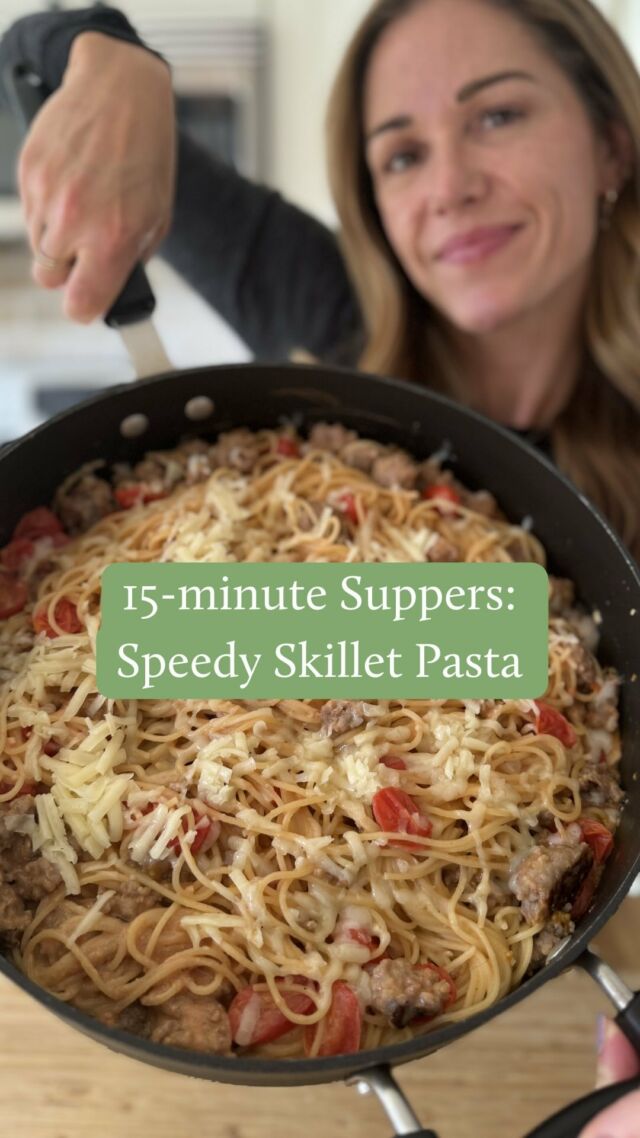
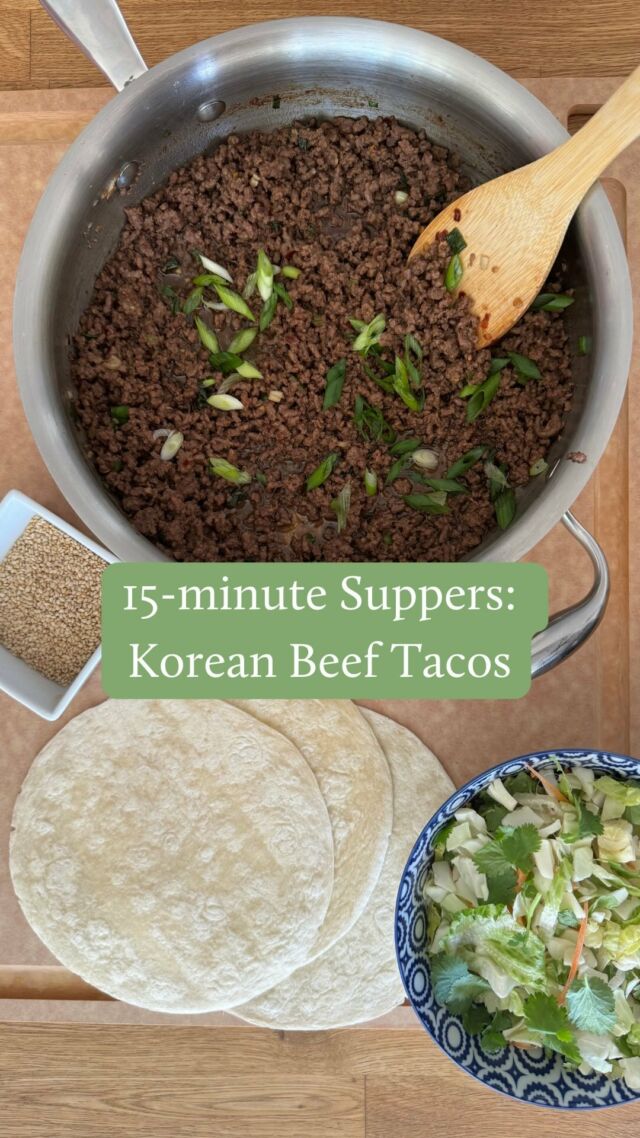
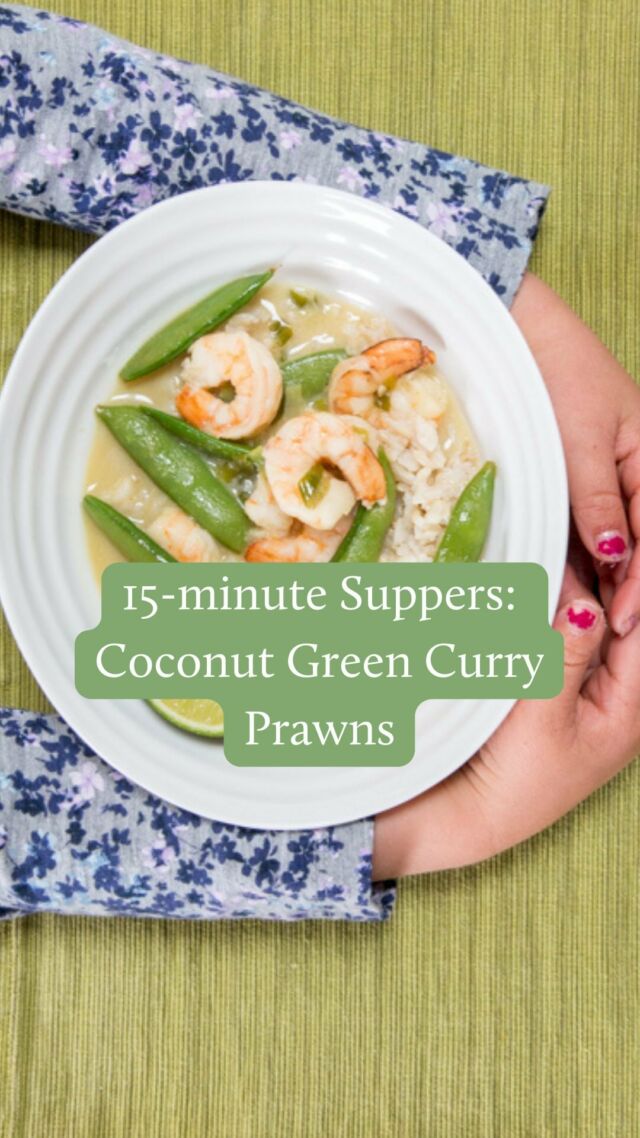
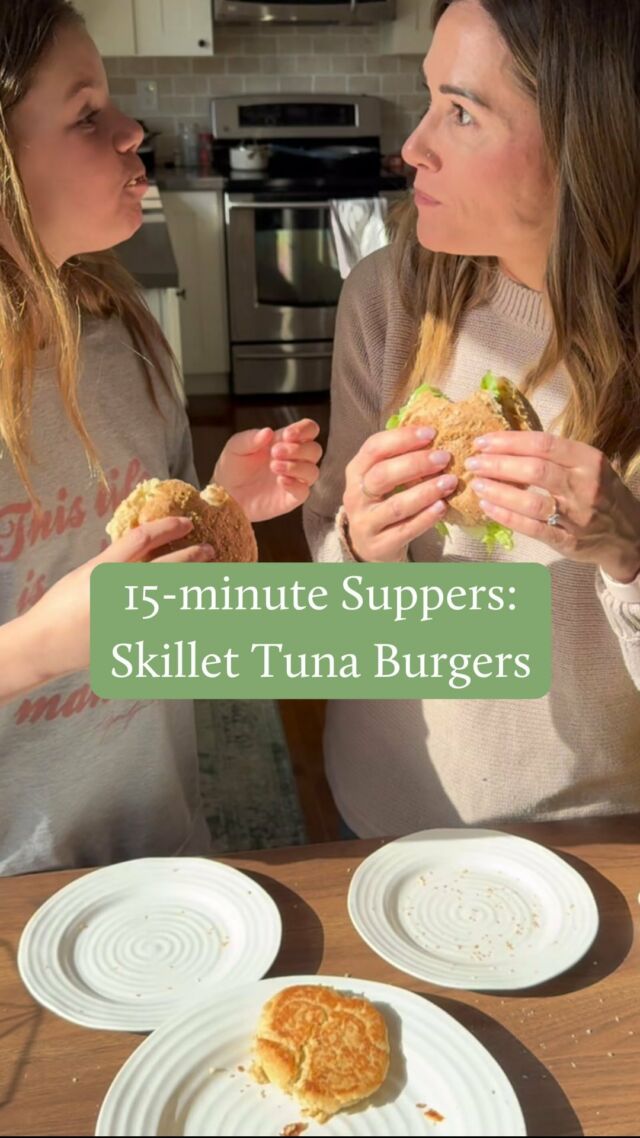
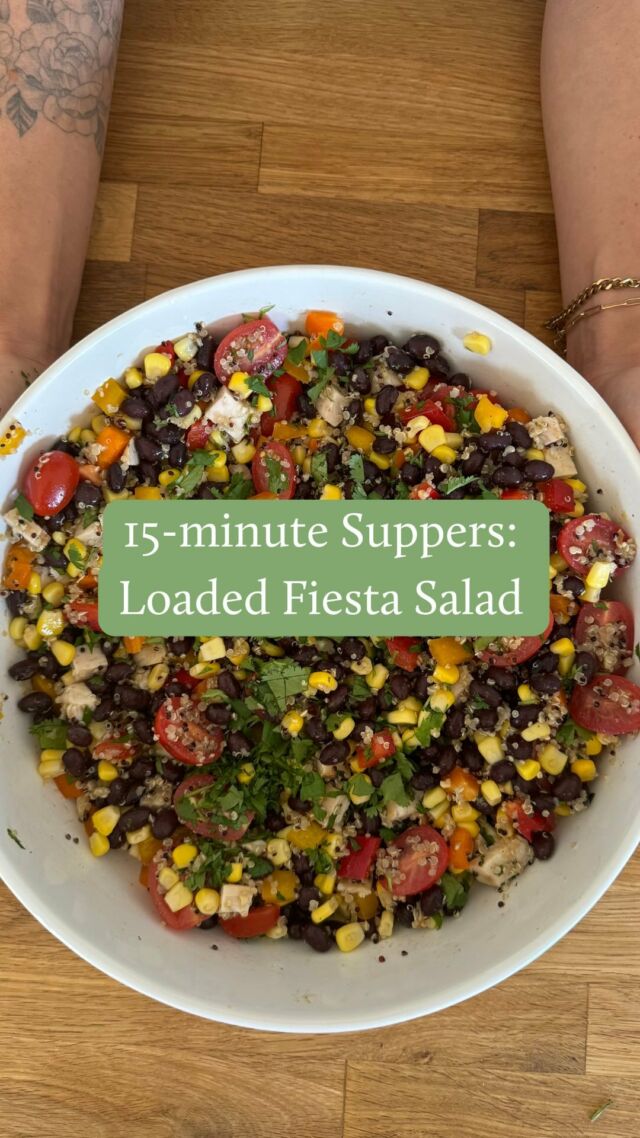

Comments
Esther Schultz says
What a fantastic article. Thank you. I too have a 3 year old who is very selective about what he eats. Even as a rd2be I still struggle with knowing what to do at times. This was a timely reminder to be mindful of the words we use around the dinner table.